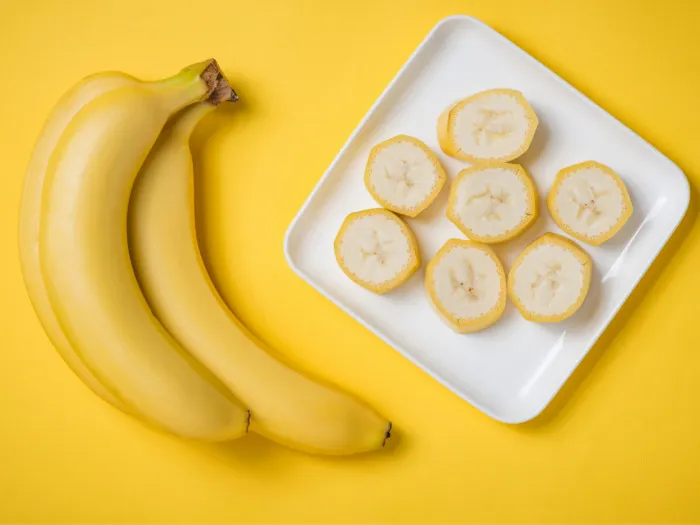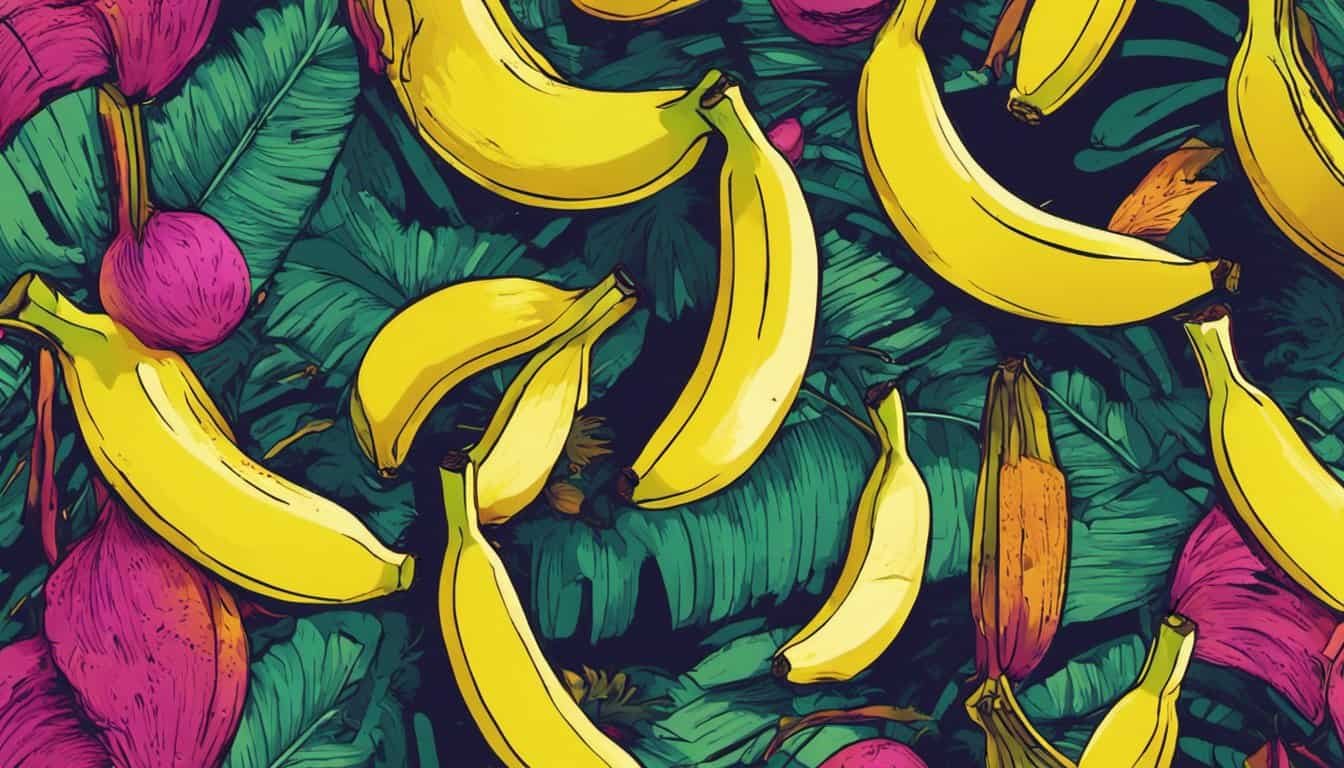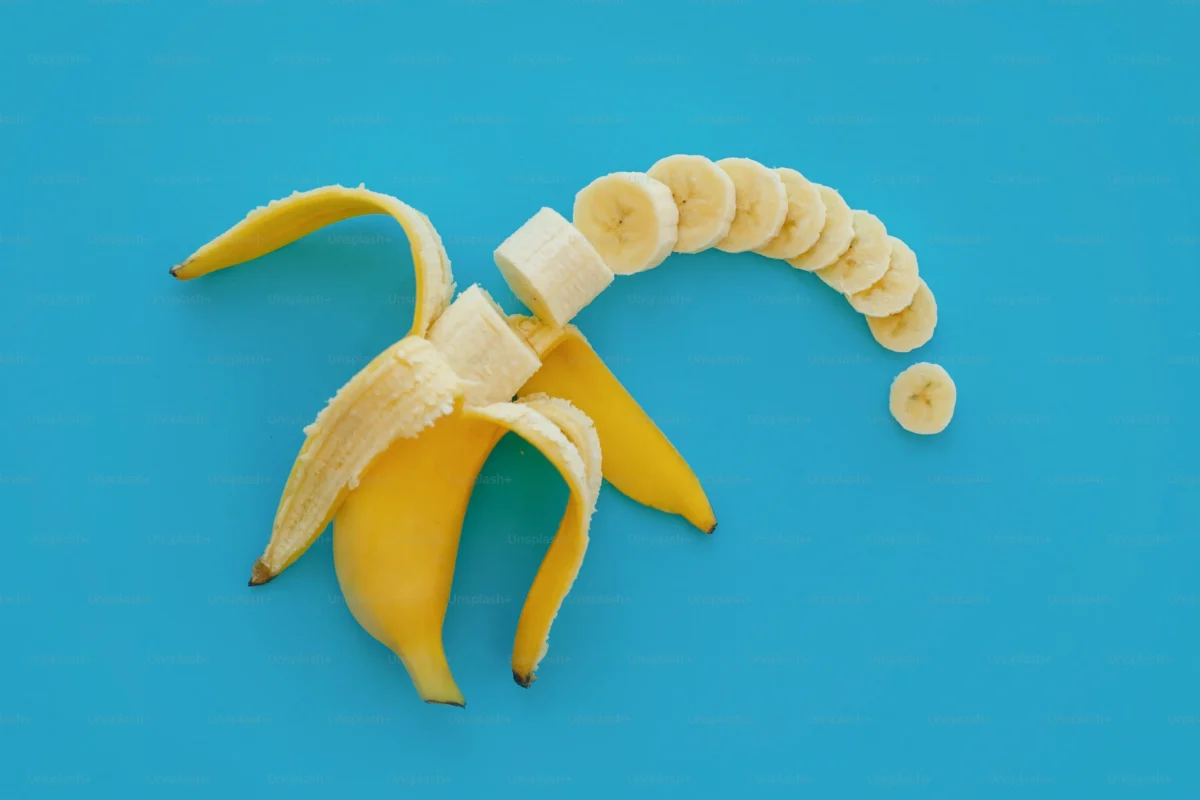The Ultimate Guide to Feeding Bananas to Toddlers: Serving Sizes and Nutritional Benefits
Bananas are an excellent source of nutrition for toddlers, providing important vitamins and minerals to aid in their growth and development. However, many parents may wonder if a whole banana is too much for their little one to consume in one sitting.

In this article, we will explore the recommended serving size of bananas for toddlers and the nutritional value they provide. We will also discuss precautions parents should take before feeding bananas to their toddlers and possible alternatives to feeding a whole banana.
If you’re a parent looking to learn more about the appropriate amount of bananas to feed your toddler, read on for valuable information and tips.
How much should a toddler consume per day?

While bananas are a popular fruit choice for toddlers, many parents may be wondering how much their little ones should consume in a day. According to experts, the recommended daily intake of bananas for toddlers is one serving per day.
This serving size typically consists of half a banana or approximately 60 grams. It’s important to note that while bananas are nutrient-dense and provide various health benefits, consuming too much can also have negative effects.
Overconsumption of bananas can lead to gastrointestinal discomfort such as constipation or diarrhea. Additionally, bananas are high in natural sugars and too much consumption can contribute to unhealthy weight gain.
It’s crucial for parents to balance their toddler’s banana intake with other healthy food choices and ensure they’re getting a well-rounded diet. Consulting with a pediatrician or registered dietitian can also provide valuable guidance on proper nutrition for growing toddlers.
In conclusion, while bananas make a great snack option for toddlers, moderation is key. Keeping an eye on portion sizes and incorporating other nutritious foods into their diet will ensure they receive the necessary nutrients without experiencing any negative effects from overconsumption.
The nutritional value of bananas for toddlers.
As a parent or caregiver, you want to ensure that your toddler is getting proper nutrition. One food that can provide a wealth of nutrients for your little one is the humble banana.
Bananas are an excellent source of potassium, which helps support healthy blood pressure and heart function. They also contain fiber, which aids in digestion and can help prevent constipation in toddlers. Bananas are also rich in vitamin C, which plays a key role in immune system support.
But the benefits don’t stop there. Bananas also contain vitamin B6, which is important for brain development and function. Plus, they provide carbohydrates for energy to keep your toddler fueled throughout the day.
When selecting bananas for your toddler, aim for ones that are fully ripe but not overly soft or brown. This ensures maximum nutrient content while still being easy to eat and digest.
Incorporating bananas into your toddler’s diet can be as simple as slicing them up as a snack or adding them to smoothies or oatmeal. With their delicious taste and impressive nutritional profile, it’s no wonder why bananas have been a staple fruit for generations.
The recommended serving size of bananas for toddlers is.

When it comes to feeding bananas to toddlers, it’s important to understand the recommended serving size. While this fruit is a great source of nutrients for growing children, overconsumption can lead to digestive issues and even constipation.
According to pediatricians and nutritionists, the recommended serving size of bananas for toddlers is one-half to one whole banana per day. This may vary depending on the age and activity level of your child.
It’s also worth noting that while bananas are a healthy snack option for toddlers, they should not be used as a replacement for well-rounded meals. A balanced diet that includes a variety of fruits, vegetables, proteins, and grains is essential for proper growth and development.
In addition to providing essential nutrients like potassium and vitamin C, bananas can also be a fun addition to your toddler’s meals. Try slicing them up as a topping for oatmeal or yogurt, blending them into smoothies, or freezing them as an icy treat on hot days.
By following the recommended serving size guidelines and incorporating bananas into a balanced diet plan, parents can ensure their little ones are getting all the nutrients they need for optimal health and growth.
Precautions to take before feeding toddlers bananas.
While bananas are a great source of nutrition for toddlers, it’s important to take precautions before feeding them. Before introducing bananas into your child’s diet, there are a few things you should keep in mind.

« is an apple and banana too much sugar
why would a banana give you heartburn »
First and foremost, make sure your toddler has no allergies to bananas. An allergic reaction can range from mild symptoms like itching and hives to severe reactions like anaphylaxis. If you’re not sure whether your child is allergic, consult with their pediatrician before giving them any banana.
Secondly, take note of the ripeness of the banana. Overripe bananas are softer and sweeter than underripe ones but may be harder for toddlers to chew properly. Choose a ripe but firm banana that your child can easily bite into without choking on chunks or getting too much sugar at once.
Lastly, limit the amount of banana given to your toddler as they may develop constipation if they consume too much fiber at once. A good rule of thumb is half a small-sized banana per day for toddlers aged 1-3 years old.
By taking these simple precautions before feeding bananas to toddlers, you can ensure that they receive all the nutritional benefits without any negative side effects.
Possible alternatives to feeding a whole banana to a toddler?
Feeding a whole banana to a toddler can be a daunting task, especially if they are not yet able to chew properly. While bananas are packed with vital nutrients, there are alternative ways of feeding them to your little ones without risking choking hazards.
One option is to slice the banana into small bite-sized pieces. This will make it easier for your toddler to handle and ensure that they do not struggle with chewing or swallowing large chunks. Another option is mashing the banana into a smooth puree which can be easily spoon-fed.
If you want to get creative, try blending the mashed banana with some yogurt or fruit juice for added flavor and nutrition. You could also freeze slices of bananas overnight and serve them as healthy popsicles on hot summer days!
Lastly, it’s important to note that while bananas are an excellent source of nutrition, variety is key when it comes to toddler diets. Be sure to incorporate other fruits and vegetables into their meals as well for a well-rounded diet.
In conclusion, there are many alternatives available when it comes to feeding your little one bananas. Experiment with different methods until you find what works best for both you and your child – ensuring their safety and promoting healthy eating habits from an early age!
Check out our other articles to find out even more about banana.

In conclusion, it is important for parents and caregivers to be informed about the nutritional value of a whole banana in relation to toddlers. It can provide an excellent source of nutrition if consumed in moderation and appropriate precautions are taken when introducing them into their diets. For those looking to learn even more about the health benefits of bananas or alternative fruits and vegetables suitable for young eaters, be sure to check out our other articles!













